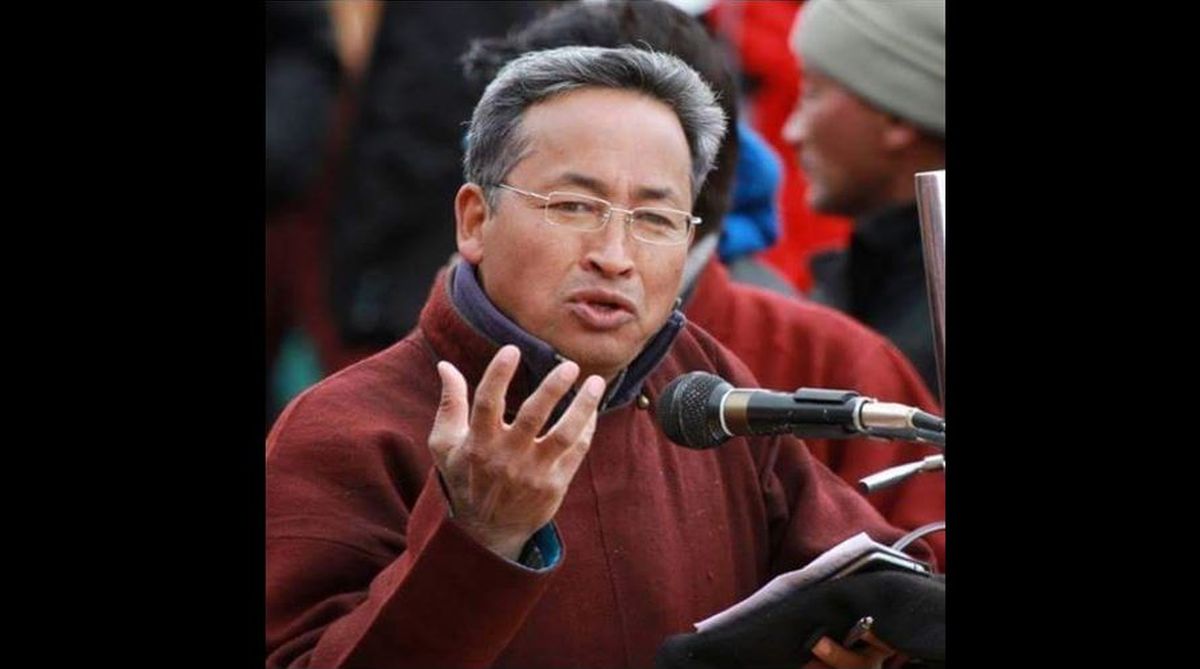Aamir Khan makes splash on ‘The Great Indian Kapil Show’
Aamir Khan's debut on 'The Great Indian Kapil show' sparks excitement as he candidly discusses skipping award ceremonies and shares amusing family anecdotes.
Wangchuk says he will dedicate the award to the minorities of mountain areas of Ladakh whose requirements are different from those of rest of the country and at times remain unattended.

Sonam Wangchuck.
An innovative Ladakhi, Sonam Wangchuk was on Thursday conferred with the Ramon Magsaysay Award for his efforts to develop educational reform programs that focus on “creative, child-friendly, and activity-based” education in the cold desert region of Ladakh in Jammu and Kashmir. The Magsaysay Award is considered as the Nobel Prize of Asia.
Talking to The Statesman over the phone, Wangchuk said that he would dedicate the award to the minorities of mountain areas of Ladakh whose requirements are different from those of rest of the country and at times remain unattended.
He said that he does not deserve the award alone as many teachers, students and local leaders supported him in the job that he undertook. He was also grateful to his family among whom he was the youngest and as such could afford to devote his time towards various issues confronting the region.
Advertisement
Wangchuk, who is known to have taken several initiatives to improve the infrastructure in the tough area of Ladakh, went on to open the Students’ Education and Cultural Movement of Ladakh (SECMOL) and is recognized for “his constructive engagement of all sectors in local society to harness science and culture creatively for economic progress.”
The 2018 Ramon Magsaysay Awards will be held at the Cultural Center of the Philippines on 31 August, the birth anniversary of former Philippine President Ramon Magsaysay. The Ramon Magsaysay Award is given to persons who address issues of human development in Asia with courage and creativity, and in doing so have made contributions that have transformed their societies for the better.
Sonam Wangchuk, with like-minded youths, in July 1988 started the SECMOL that was concerned about the dismal state of the education system and the cultural confusion among youth, in the face of Ladakh’s opening to mass tourism.
“I was 22 and had just finished my mechanical engineering education yet my hands were itching and heart crying to do something about the 95% failure of Ladakhi students in the 10th grade board exams. Soon we formed a great team with passionate and supportive founding members like Ka Mipham Odsal (theatre artiste), Ka Tashi Tondup (statistician) Ka Wangyal Tsering (musician/engineer), Sonam Dorje (ecologist), Tsering Angchuk Ralam (musician) and later Lobzang Tsultim Visuddha and Lobzang Namgyal Nanam”.
“During the early years none of us took any salaries and worked roughly 18 hours a day. Even later I never took more than 10,000 rupees per month,” said Sonam Wangchuk.
In the early nineties when we started school reforms in the villages we were helped by all the elderly leaders particularly Kaga Thupstan Chewang (before he became Chairman of Ladakh’s first Hill Council), Ajang Akbar Ladakhi, Aba Tsewang Dorjai and so on.
When the Hill Council came into existence in 1995, all senior leaders like Ka Rigzin Jora, Ka Tshering Lagruk and Ka Rigzin Spalbar wholeheartedly supported the Operation New Hope (ONH) movement to overhaul the government school system. “The failure rate reduced drastically and for those who still failed SECMOL launched the Alternative School at Phey. And the rest is history… as they say”.
It was Sonam Wangchuk whose story inspired Aamir Khan’s character of Phunsukh Wangdu (Rancho) in the 2009 superhit film 3 Idiots.
Advertisement